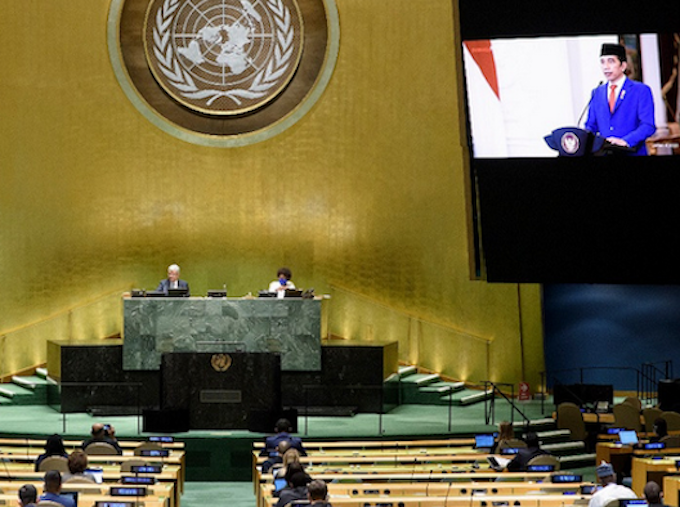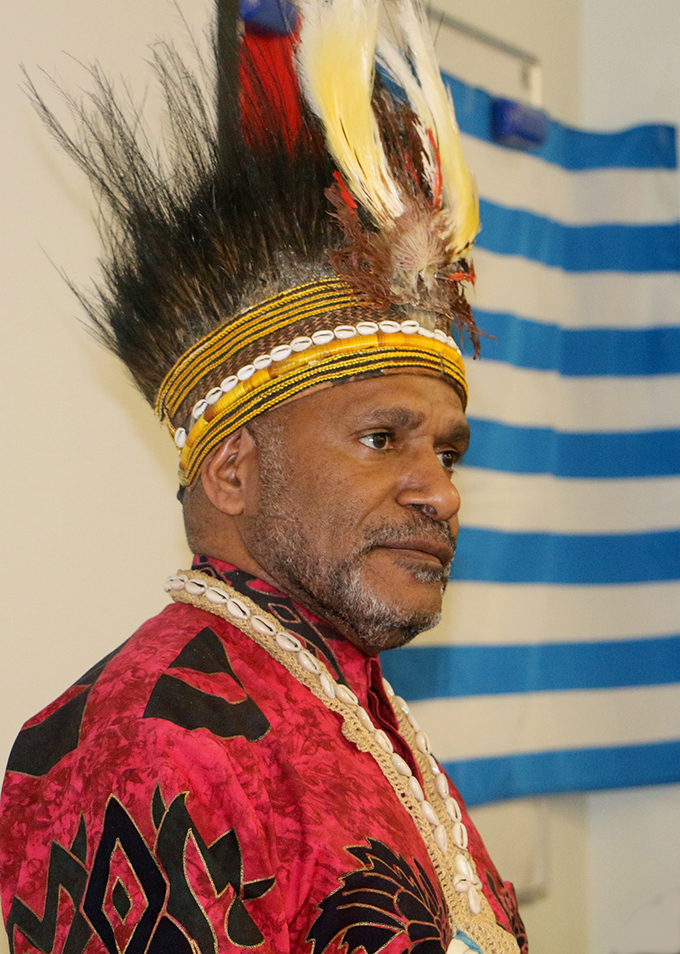
Asia Pacific Report newsdesk
An exiled West Papuan leader has condemned Indonesian for “hypocrisy” in speaking out about Myanmar and Palestine while voting at the United Nations to ignore genocide and ethnic cleansing.
The leading English-language daily newspaper, The Jakarta Post, has also criticised Jakarta’s UN vote.
“We are thankful that Indonesian leaders show solidarity with the suffering of the Palestinians and Myanmarese, but Indonesia is desperately trying to cover up its own crimes against humanity in West Papua,” said interim president Benny Wenda of the United Liberation Movement of West Papua (ULMWP).

At the UN General Assembly last week, Indonesia defied the overwhelming majority of the international community and joined North Korea, Russia and China in rejecting a resolution on “the prevention of genocide, war crimes, ethnic cleansing and crimes against humanity”.
Voting in favour of the RP2 resolution were 115 states while 28 abstained and 15 voted against.
The Jakarta Post said in an editorial that to find Indonesia on the “no” list was “perplexing”.
“The country that had at one time championed for the inclusion of human rights and democratic principles in the ASEAN Charter is now seen as voting against attempts to uphold those very principles internationally,” the newspaper said.
“Recent events in Myanmar and in the occupied Palestinian territory raise questions about the failure of the international community to intervene and stop bloodshed in these two countries.”
‘Real reason’ for vote
The Jakarta Post said there was speculation about the “real reason” behind the no vote.
“One is the spectre of R2P being invoked against Indonesia over the Papuan question. In spite of the recent escalation of violence in Papua, the situation on the ground is still too far to merit international intervention,” the newspaper claimed.
However, while the Indonesian Foreign Minister claimed to “fight for humanity”, the truth was the opposite, said Wenda in a statement.
“They are committing crimes against humanity in West Papua and trying to ensure their perpetual impunity at the UN,” he said.
Indonesian leaders often talked about the right to self-determination and human rights, and the Indonesian constitution’s preamble called for “any form of alien occupation” to be “erased from the earth”, noted Wenda.
“But in West Papua, the Indonesian government is carrying out the very abuses it claims to oppose. Their refusal to accept the UN resolution is clearly the consequence of ‘the Papuan question’,” he said.
“The evidence is now overwhelming that Indonesia has committed crimes against humanity, colonialism, ethnic cleansing and genocide in West Papua.
Women, children killed
“The same week as the UN vote, the Indonesian military – including ‘Satan’s troops’ implicated in genocide in East Timor – were attacking Papuan villages, killing unarmed women and children and adding to the over 50,000 people displaced since December 2018.
“The stated aim of the operations is to ‘wipe out’ all resistance to Indonesian colonialism,” Wenda said.
“When you displace villagers, they lose their hunting ground, their home, their entire way of life.
“This is systematic ethnic cleansing, part of a long-running strategy of Jakarta’s occupation to take over our lands and populate it with Indonesian settlers and multi-national corporations. This is the intent, and we need action before it is too late.”
Wenda said that after Papuans declaring resistance to the illegal occupation “terrorism”, Indonesia had launched a massive crack down.
“Victor Yeimo, one of our most popular peaceful resistance leaders, has already been arrested. Frans Wasini, a member of the ULMWP’s Department of Political Affairs, was also arrested,” he said.
“In the city [Jayapura], students at the University of Cenderawasih are being dragged out of their dorms by the police and military and made homeless. Anyone who speaks out about West Papua, human rights abuses and genocide, is now at risk of being arrested, tortured or killed.
Arrested ‘must be released’
“Victor Yeimo, Frans Wasini, and all those arrested by the Indonesian colonial regime must be released immediately.”
Wenda described the deployment of more than 21,000 troops, killing religious leaders, occupying schools, shooting children dead as “state terrorism, crimes against the people of West Papua”.
Such developments had shown more clearly than ever the need for Indonesia to stop blocking the visit by the UN High Commissioner for Human Rights. Eight-four countries have already called for the visit.
“There can be no more delays. The troops must be withdrawn, and the UN allowed in before more catastrophe strikes.”










































